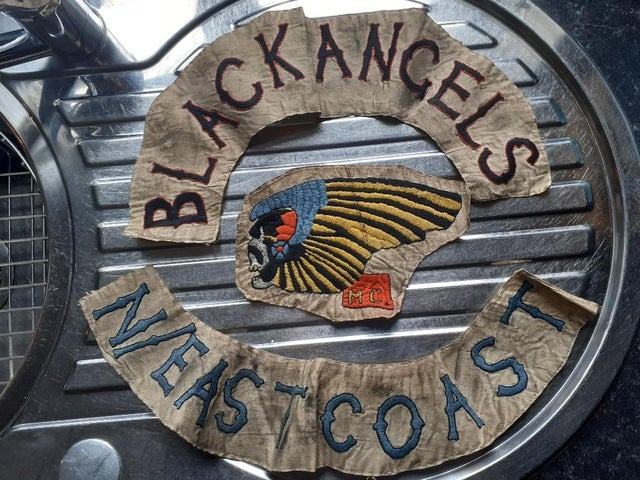They were called the Black Angels and they did indeed look very intimidating when revving through the town on their beloved motorcycles, but there was more to them than that.
Who were the Black Angels of Sunderland?
Individually they seemed like people to be wary of. Collectively – and there were over 300 of them – they frightened the life out of people with their leather jackets and loud engines.
However The Black Angels were lauded in the wider community because of their charity worker which won them admirers from the most unlikely of folk.
The club’s main campaign involved raising £3,000 (about £36,000 in today’s money) to buy a kidney machine for the Sunderland Royal Infirmary.
They achieved this, and then some raising hundreds of pounds for local schools.
Each Black Angel had to pay the princely sum of 10p per week in subscriptions, but the bulk of their fundraising came from the incongruous cabaret shows they performed around the clubs.
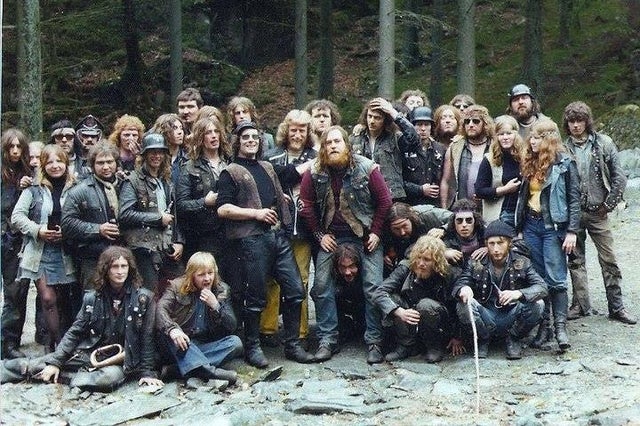
They were a huge hit on the North East club scene, drawing in big crowds who cheered them on, and not just because they were too scared to boo!
Despite appearances, most of the Black Angels held down responsible, full-time jobs as well as looking after their families and saw the club as both a hobby and a way to give back.
The leader of the pack – Dick Allan
President of the Black Angels and their undisputed leader was Dick Allan. He founded the group in 1969, merging several groups into one chapter, and became something more than just a president.
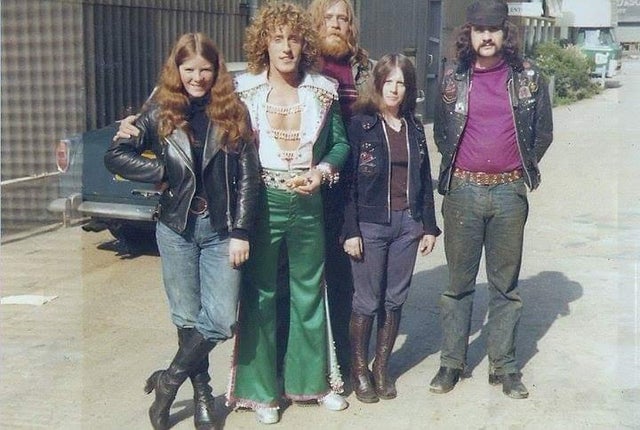
BBC presenter Martin Young featured the club on an episode of current affairs show Nationwide and described him as “a man of Godfather strength” (Young was later best man at Dick’s wedding).
Dads of the 1970s would often assert that long-haired types like those in biker clubs “need a spell in the army”, when in fact Dick had been a soldier.
Born in Sunderland in 1934, he was, to understate things spectacularly, something of a local character.
He had a tough upbringing and spent time in remand school before completing two years of National Service in Egypt, then becoming a qualified glass cutter.
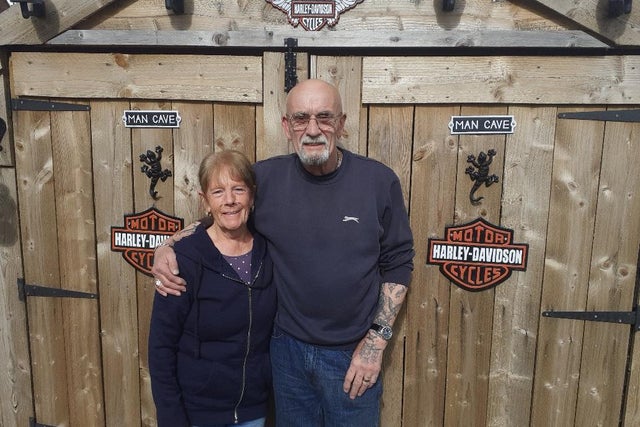
No stranger to stern disagreements, according to a 1976 Guardian article he could remember “waking in hospital after a particularly bad scuffle and found he could put a finger in a hole in his head.”
Still, the Guardian piece also cited further evidence that didn’t verify the stereotype. Dick Allan may have resembled “a painting by Hieronymous Bosch gone wrong”, but he was a lover of chess, flower gardening and Shakespeare
“They should all be banned!”
The Black Angels were brought to national attention in 1973 in the feature by the journalist Martin Young (readers of a certain vintage will remember him), on the BBC’s hugely popular programme Nationwide.
Doing his best to appear relaxed, young Martin interviewed President Dick Allan, while riding pillion on Dick’s bike as the club zoomed along the highways of Sunderland.
Footage of the convoy in Fawcett Street is particularly impressive. They had great bikes and great hair, although few casual onlookers would fail to find them somewhat scary too.
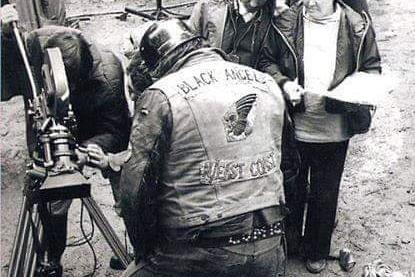
One contributor to the piece, an eloquent lady who looks to be in her 30s or 40s, gives short shrift to the Angels.
Speaking for many, she said: “Something should be done about it. We were sitting having coffee and the noise in the little restaurant was absolutely terrible. They should all be banned!”
However scandalised coffee drinkers aside, the report showed that the club had a softer side and that the Black Angel’s charity efforts were appreciated on Wearside.
Stars of the big screen: The Who’s rock opera Tommy
The group even made a hit film. When Oscar-nominated director Ken Russell needed a biker club to feature in a fight scene for his 1975 movie version of The Who’s rock opera Tommy, he didn’t want actors, he wanted the real thing so he got the Black Angels.
The scene, filmed in the Lake District, was planned to be a bust-up between the Sunderland bikers and another club. However, the other club wisely decided against it.
This left the director with a problem, but fortunately for Ken Russell, whatever Dick Allan said – went: even if he ordered the club members to hit each other.
Russell later recalled in an interview: “The Black Angels. They’re not acting when they fight. Another group they were supposed to fight turned yellow and didn’t turn up. I said: ‘What are we going to do?’
“They said: ‘We’ll just fight each other. We don’t care.’
“I knew the president (Dick). He was called Mr President. They’d do anything he said. So when he said ‘Just knock the **** out of each other’ – they’d do it.”
And do it they did, drumming up four day’s worth of trade for a Keswick hospital. Former Angels member Phil Duke confirms: “We really went to town.”
Phil from Pennywell, still remembers the moment in 1975 when he got to kick Roger Daltrey in the head, before going out for breakfast with the rock star.
Phil said: “The film showed you me lifting my foot and bringing it down on Roger Daltrey.
Phil’s wife Belle said: “We all went down to Shepperton Studios to film Tommy and stayed in this posh hotel.
“Dick Allan drove us down and we had breakfast with Roger Daltrey – and what a lovely man he is.”
And now …
Women were part of the club too. Belle Duke, now 69, would often ride with her husband and owned a BSA Bantam.
Belle said: “We just all used to go with the lads. I used to embroider the colours for Phil.”
Phil Duke is now 72 and still riding a Harley-Davidson. He and Belle live in Pennywell. They went on to have two sons and four grandchildren. Phil was a turner and fitter at Rolls Royce. Belle worked in social work.
Another member of the group was Belle’s much-loved brother Joseph Jenkins, known to the others as Creosote. Sadly he passed away aged 65 on April 1, 2020, a victim of coronavirus.
Indeed, the number of Black Angels has inevitably dwindled. After all, it’s now 47 years since Nationwide captured them for posterity. Dick Allan died in 2004. Martin Young went on to join Panorama and Newsnight and is still working today aged 72.
The Black Angels Facebook page is rarely updated, but says simply that they “were a motorcycle club active in Sunderland between 1970 and 1976.”
However, it is uncertain exactly when they ceased to formally exist. Memories among the remaining few are hazy. It seems that the Black Angels of Sunderland just faded away.
But they had an awful lot of fun and created countless memories before they did.
Make sure you have subscribed to our Facebook page or Twitter to stay tuned!
Source: Sunderland Echo
